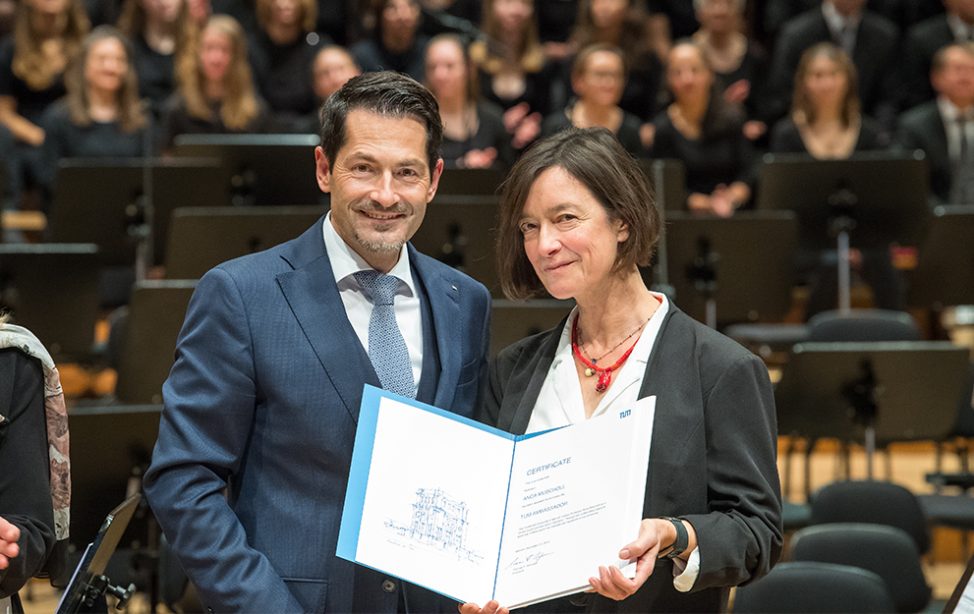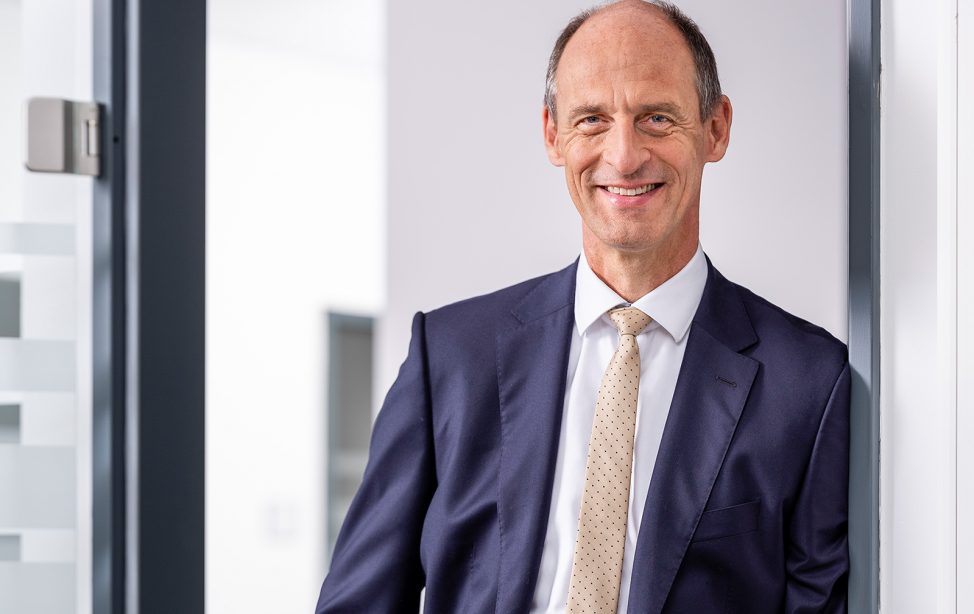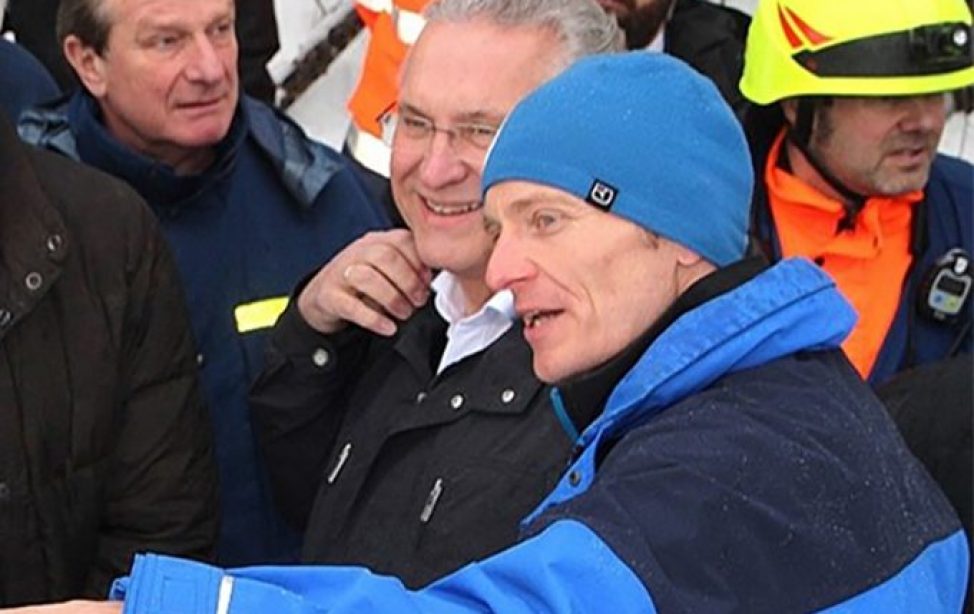
Basketball silver medal winner Laura Fuerst in the faculty building of Mechanical Engineering (Image: Uli Benz / TUM)
And she found a new sport for herself. A group of wheelchair basketball players trains every week in the clinic. To be able to take part in it, Fürst has achieved a lot: “It really keeps you fit. When you train in a sport, you get fitter every day.” At the beginning in particular, sport and everyday life cost a lot of energy, which has to be built up: “Because you are not accustomed to the power you need with and from your arms.”
“Time to start living again”
What Laura Fürst likes best about basketball to this day is that it is a team sport. That was something she already learned to appreciate in the clinic. During her initial period in a wheelchair in particular, it was important to be able to deal with the new situation. “You meet people who give you clever tips. This automatically creates a valuable network.” The sports also helped her to leave the clinic and feel good about it, and to cope well with her wheelchair alone in everyday life. “But I had to get to that point at some time where I said: “Enough with convalescence, time to start living again!”
Able-bodied and wheelchair users already played together 30 years ago.
Singing and dancing in Rio
Although wheelchair basketball is one of the best-known and most widespread team sports for disabled people, the sport is still not well known. Often only about 100 spectators turn up to watch the Bundesliga matches, with up to 1000 at some games. At the Paralympics in Rio 2016, however, there were a few more. We had our opening match against Brazil, and the hall was full. That was 15,000 people, all of them against us at first”, Laura Fürst remembers.
But in the end, the fans were really fair: during the game against us, but after that everyone came to congratulate us. They were dancing and singing, and there was a completely different atmosphere than in Germany.” In the finale, her team had to admit defeat to the Americans, but returned to Germany with the success of a silver medal. For Laura Fürst, Rio was a very special experience and she talks about it enthusiastically. “The whole event was very exciting for me and so many new impressions were gathered. The fact that we made it to the final was due to a great team performance. Of course it’s bitter to lose the final, but the joy of winning the silver medal quickly outweighed it and still gives me the creeps when I think about it.”
The German wheelchair basketball national team at the Women's Gold Medal Match in the Barra Riocentro (Image: Andreas Joneck)
A car for the sub-Saharan region
Besides sports, Laura Fürst loves her work as an engineer. In her master’s thesis, which she handed in in 2018, she processed test data from Ghana collected for the aCar, an electric vehicle for sub-Saharan Africa, and worked out the resulting effects for the e-machine and battery. “It was such a nice mix of theory – the data analysis – and a real-world project. That’s what I liked about it.”
She finds it particularly exciting that the routes and roads in Ghana place completely different demands on the vehicles than here in Germany. “People simply don’t drive as fast there as they do here, because the roads don’t allow it.” With the help of the test data, she defined the different conditions and thus further developed the project. After graduating, she joined BMW as a systems designer. “I’ve already dabbled in various things and wrote my bachelor’s thesis at a StartUp about a wave power plant, but I already really like vehicle engineering.”

Laura Fürst in a match (Image: MSSP)
B.Sc. Power and Process Engineering 2015
Combining top-class sport and studies is not really a problem for Laura Fürst, as she is able to put together her own timetable and does not have much compulsory attendance.
For a year in the USA she received a sports scholarship and took two vacation semesters. In this way, she was able to choose the subjects that interested her most and use the wide range of sports on offer. “It was exciting to get to know another university and study in English.”


